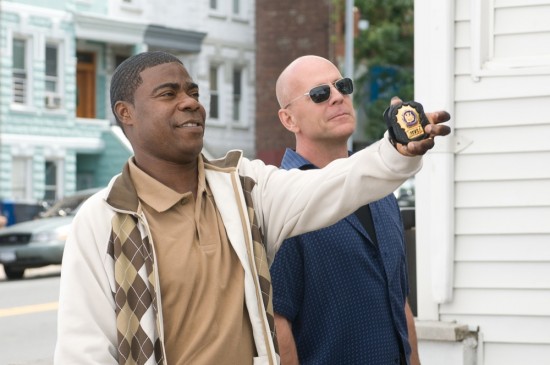
As I watch the various trailers and interviews featuring comedic actor Tracy Morgan and his latest movie Cop Out, it invariably makes me wonder where we are in terms of this supposed “post-racial” society.
Post-racial…as in after or beyond the issues of race.
One could argue that if we have reached this supposed Promised Land, we wouldn’t be talking about it to the degree we presently do. We as a nation acknowledge our “post-industrial” status only as an anecdote; at most as an aside as to why the Big 3 car-makers have failed or why corporate outsourcing to India is both viable and profitable. In other words, we say it as an explanation of the obvious, not an argument to be proven.
The benchmark of course has been the presidency of Barack Obama in this “post-racial” discussion. What’s not in debate is whether his election was both symbolic and substantive in nature. What is in question is the ratio between the two.
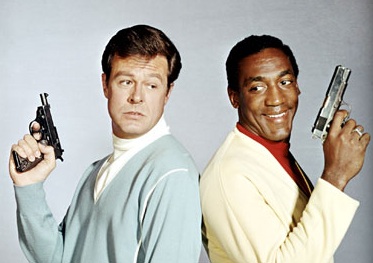
Symbolically and substantively, the pairing of Robert Culp and comedian Bill Cosby for I Spy in 1965 was significant as it was the first pairing of its kind for a television drama.
Pairing a prominent White actor (Bruce Willis) with a Black comedian in 2010 (Tracy Morgan)…not so much. Depending on whom you ask, such a combination either affirms or disputes the contention that race still matters. For some, the idea that African-Americans need to be funny or “entertain” audiences opposite their White “intelligent” counterparts is just as insulting today as it was back in the day. To that point, not everyone Black was fond of pairing Eddie Murphy with Nick Nolte in 48 Hrs. or even the hugely successful duo of Richard Pryor and Gene Wilder.
[youtube=http://www.youtube.com/watch?v=MbEVhaOWJnA]
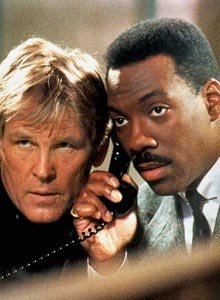
Successful yes, but racially progressive?
Conversely, there are those who would say that the entertainment industry is about just that…”entertainment.” The goal is to make money; generate the biggest laughs which help generate the biggest gate.
The truth is probably somewhere in between, a combination of proven box office formulas and lingering stereotypes of “acceptable” roles for African-Americans.
Some others that readily come to mind:
Men in Black – Tommy Lee Jones and Will Smith
The Last Boyscout – Bruce Willis and Damon Wayans
Rush Hour – Jackie Chan and Chris Tucker
The fundamental question in any discussion of whether this “post-racial” society has arrived is whether America is different now than before the election of Barack Obama on the issue of race.
In terms of cinema, no. When it becomes routine to cast an African-American male lead opposite a White female love interest, then maybe. When the controversial sex scene in Monster’s Ball is socially acceptable even if the genders and ethnicities are reversed…then maybe. When Denzel Washington can win an Oscar for playing a civil rights hero as well as a sociopath monster…then maybe. When Halle Berry can win an Oscar while never having to disrobe…then maybe.
But not a moment before then, to be sure.
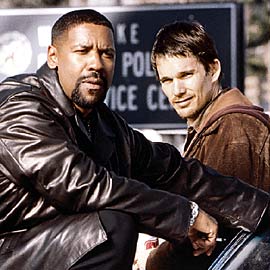
The ironic part about Hollywood is that it plays on both sides of the fence. It helps changes opinions while at other times reinforces prevailing stereotypes. If you think the casting of Morgan Freeman and Dennis Haysbert as “The President” in the movie Deep Impact and the television series 24 respectively didn’t positively influence the future campaign of Barack Obama, you would be a fool.
If you think the multi-cultural cast of Star Trek and on-screen interracial kiss of Uhura and Captain Kirk in 1968 didn’t help change the course of television
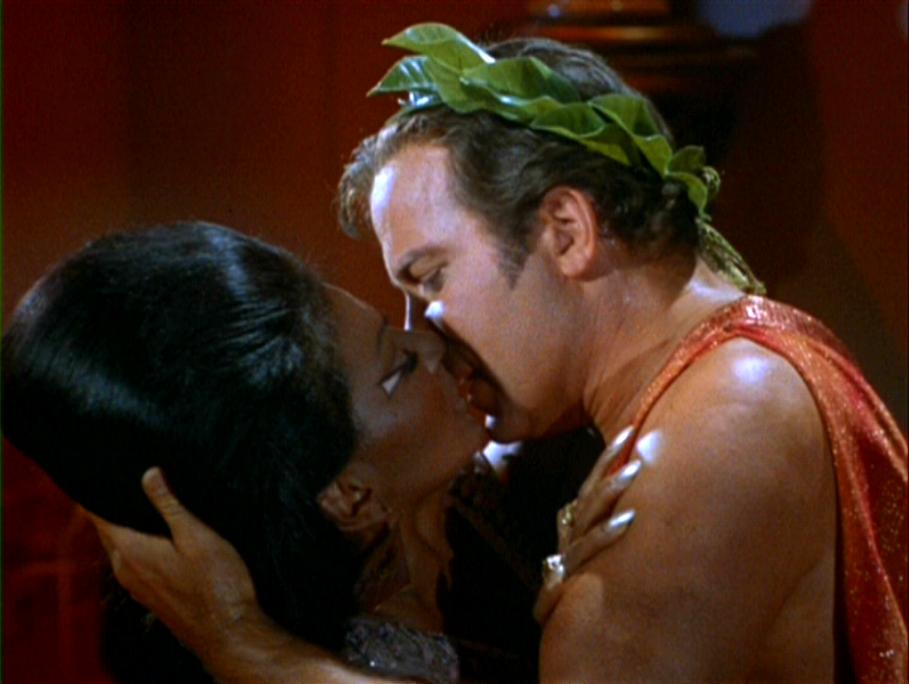
and race-relations you would be a fool. And of course we can’t forget the Roots miniseries.
On the other hand, if you think that African-Americans aren’t also tired of the “critical acclaim” of stories featuring Whites “saving” Blacks…you’d be a fool. Despite how “true” the movies The Blind Side, Glory Road et al. may be, there are plenty “untold” stories in reverse which seem to never make it to the silver screen.
[youtube=http://www.youtube.com/watch?v=i1hG_mjQojw]
If we extrapolate this even further, despite the wonderful special effects, the White soldier hanging out for 3 months on Pandora who manages to single-handedly “save” the indigenous people “of color” from technology (who just happened to wear beads, braids/dreadlocks) wasn’t exactly appreciated by all African-Americans either. And that’s saying nothing of the wide noses and full lips of the Pandorans. Avatar may be the top grossing film of all-time but it sings a familiar refrain along the way. Memories of Tarzan haven’t altogether faded over the years.
Blackface…blueface; you say tomato, I say tomawto.
Why James Cameron could imagine a beautiful, uncharted utopia thousands of light-years away, yet couldn’t imagine a more creative depiction of its storyline, Mo’Kelly isn’t quite sure.
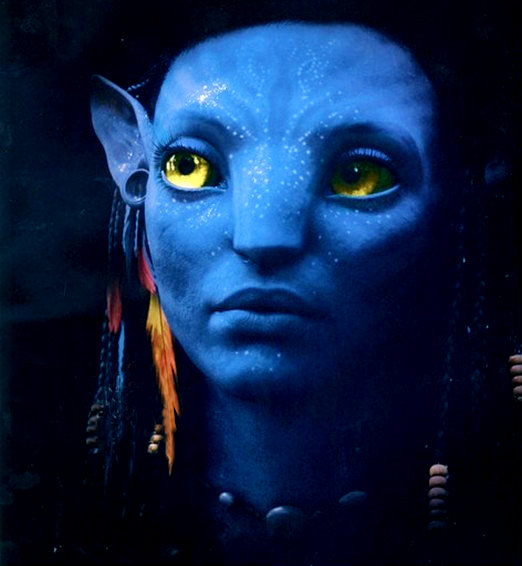
I know what some are you are thinking…Mo’Kelly is finding “race” when and where it wasn’t meant to be and had no role in the production.
Wrong.
We attend movies as a sum total of our experiences. Mo’Kelly can’t watch Cop Out and simply ignore the memories and history of Black/White buddy cop movies. It also explains why a classic such as Guess Who’s Coming to Dinner means more to my generation and my parents’ than it does to young people today. Sidney Poitier musing about a world in which there “could” be a Black Secretary of State or Black President with “colorful administrations” doesn’t quite mean as much to today’s young people who don’t remember a world without Condoleezza Rice, Colin Powell and now Barack Obama .
Comedian Dave Chappelle said it best in explanation as to why he abruptly left his television show.
“I want to make sure I’m dancing and not shuffling.”
To understand the depth of that comment means to understand the history of media and the portrayals of African-American men. If you don’t understand what Chappelle meant, you won’t understand or agree with anything written here.
[youtube=http://www.youtube.com/watch?v=X5kA31rV6sA]
Interracial marriage is not the “scandal” in 2010 as it was in 1967, a full year before the aforementioned first interracial kiss on television.
It’s both good and bad.
It’s good in the sense of the progress that can be charted and bad in the way it’s clear how much farther the journey will be. The truth of the matter is that those too young to remember such a world found in 1967 aren’t yet the opinion-leaders or the policy-makers in America.
One day they will be, but not yet. They are not the senators, the studio heads or even the network presidents. Not yet.
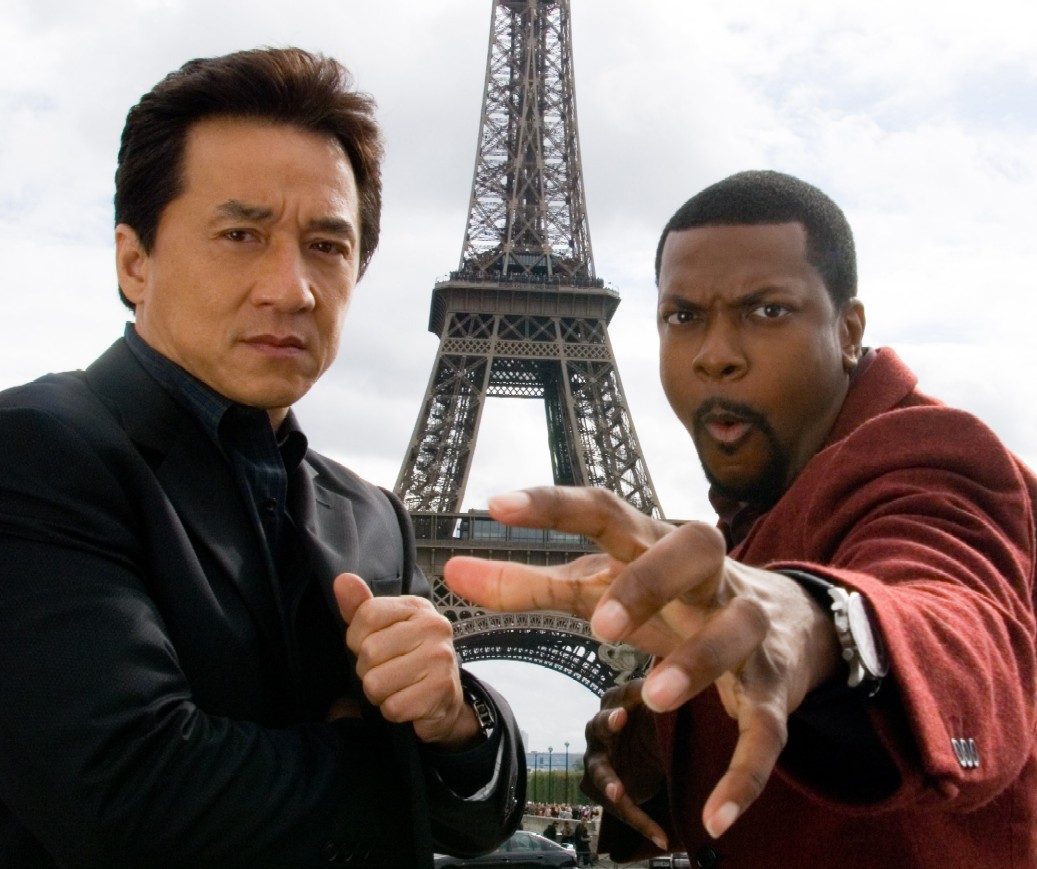
And until they are, we are not and can not possibly be a post-racial society. So Mo’Kelly will still go see Cop Out with my racial baggage in tow; because Mo’Kelly most importantly is a fan of Bruce Willis, Tracy Morgan and director Kevin Smith. But let’s be fair and let’s be clear; Hollywood will not have put down its own racial baggage until it permanently moves away from flaunting the “racial” formulas and themes which garner the biggest bang for their buck.
[Stay tuned…the new mrmokelly.com website is coming to you in 2010. Set your browsers now.]
16 responses to “Post-Racial Hollywood? Historical ‘Cop Out’”
Morris,
I think that you and I know better than most that this is a never-ending conversation.
And as long as attention can be gotten by playing on divisiveness, nothing can or will change.
One thing that left me so angry about the JM brouhaha was your role in exactly that: playing to divisiveness.
As you undoubtedly know, you have a rapt audience which loves red meat. You throw a white dude speaking stupidly at them, and watch them rant!
Nuance goes out the window. Fairness goes out the window. Any thoughts of a teachable moment go out the window.
So, "Mr. Mo Kelly" probably knows as well as the next guy, "Hey, there's some meat on this bone. Let me toss it to the hungry mob."
In other words, you aren't "above" playing a hot story for all it's worth.
Sometimes, as with the Weeping Ivy, there's legitimate news and you can make a real difference.
Sometimes, as in JM, the stakes are much lower but the celebrity value is higher, and that's when things go a little bit strange, and that's usually when you see my blood pressure rise.
I definitely agree with much of what you have written. It seems that whenever a Black male sidekick is involved in films, he has to be funny to the point where he appears goofy and careless, appear less intelligent, less cultured than the main character. He can never just BE. As far as Halle winning that Oscar, while I think she is a good actress, I was floored when they gave it to her for monsters ball. How many acting skills does it take to pretend to dry hump someone in a movie? Monsters Ball was horrible and depressing. When she played Dorothy Dandridge, I thought she did a wonderful job.
I saw a movie last weekend called Percy and the Lightning Thief. The Black character (who was the sidekick) so stereotypical of what(dancing, speech, and attitude)some preceive all African Americans to act like.
Seems to me that the most level headed person in "Lethal Weapon" was Danny Glover's character.
He was so good in those movies.
"You ever met anybody you didn't kill?"
Lethal Weapon is the exception which in fact proves the rule.
Ah, that explains it!
I didn't know it was a rule…
:-O
It is disturbing that sometimes African-Americans actors are used as comic relief. In the movie Couples Retreat I left upset at the way the African American characters were portrayed. It is especially evident sometimes that White writers are writing the dialogue from their perception of how African Americans act and it is usually stupid and over the top bordering on slapstick.
I do see some stereotypes in cinema, no doubt about it:
White guys are usually cast as "the bumbler"
Black guys are often cops or criminals or convicts, anything that needs grit. Directors usually rely on black men to provide grit, although a few white actors can do it too. Eastwood comes to mind.
Hanks and Cruise do not, for example.
Sexual conquerors tend to be black men, often at the expense of white men. Black men are portrayed as more capable than white men of "satisfying a woman."
Damn those stereotypes!
I agree with everything you say except that it doesn't go far enough. I remember. as a kid, seeing the white Tarzans forever saving the helpless natives. (How he learned to do all this while being raised by apes I'll never understand.)
Big Mo'
Tarzan was raised by natives and developed special powers.
It's all in the spin, I say 🙂
Morris,
I think that you and I know better than most that this is a never-ending conversation.
And as long as attention can be gotten by playing on divisiveness, nothing can or will change.
One thing that left me so angry about the JM brouhaha was your role in exactly that: playing to divisiveness.
As you undoubtedly know, you have a rapt audience which loves red meat. You throw a white dude speaking stupidly at them, and watch them rant!
Nuance goes out the window. Fairness goes out the window. Any thoughts of a teachable moment go out the window.
So, “Mr. Mo Kelly” probably knows as well as the next guy, “Hey, there’s some meat on this bone. Let me toss it to the hungry mob.”
In other words, you aren’t “above” playing a hot story for all it’s worth.
Sometimes, as with the Weeping Ivy, there’s legitimate news and you can make a real difference.
Sometimes, as in JM, the stakes are much lower but the celebrity value is higher, and that’s when things go a little bit strange, and that’s usually when you see my blood pressure rise.
Walt, to your point…he was called "Tarzan, Lord of the Apes"…do with that as you will. But that's what he was called.
And according to the story…he WAS raised by apes.
http://en.wikipedia.org/wiki/Tarzan
"Tarzan is the son of a British Lord and Lady who were marooned on the West coast of Africa by mutineers. When Tarzan was a year old, his mother died of natural causes, and his father was killed by Kerchak, leader of the ape tribe into which Tarzan was adopted. Tarzan's tribe of apes is known as the Mangani, Great Apes of a species unknown to science. Kala is his ape mother. Tarzan (White-skin) is his ape name; his English name is John Clayton, Lord Greystoke (the formal title is Viscount Greystoke according to Burroughs in Tarzan, Lord of the Jungle; Earl of Greystoke in later, non-canonical sources, notably the 1984 movie Greystoke). In fact, Burroughs, as narrator of Tarzan of the Apes, describes both Clayton and Greystoke as fictitious names – implying that, within the fictional world that Tarzan inhabits, he may have a different real name."
So, actual primates, not simply native humans.
Then we leap forward into the Bugs Bunny depictions of dark-skinned cannibals with primitive speech.
I get it.
Lethal Weapon is the exception which in fact proves the rule.
And now Zeta Tau Alpha has taken the $100,000 Sprite Step Off away from the D9. I'm done……
Mo, you seem to be projecting there: "In terms of cinema, no. When it becomes routine to cast an African-American male lead opposite a White female love interest, then maybe." Why I want to pay to see that when I live in L.A. and see it way too often and rarely see people who look lik me on screen? Personally, my goal in life is not to be able to view more interracial couples on film. I happen to like seeing Black couples, ad Black women like me which is a rarity as is. Post-racial Hollywood is not about seeing actors getting it on across color lines. It is about seeing the diversity of this country. Hearing everyone's story and being seen. I want to see us in good roles. I am a woman unto myself. I am not the white lead's goofy side-kick. I am notthe jive talking waitress in the back. I don't know any Black woman who in anyway resembles the lack of class and dignity as portrayed by Eddie Murphy in drag. I want to see real storylines, real action, real love, triumphs and angst. And I want it in all the flavors: black brown red cream and yes, even white. But I refuse to live on a diet of white cinema alone, or go see movies that insult and attempt to minimalize me. I'll keep my movie dollars in my pocket. Thanks anyway. Oh, and Avatar rocked. True, it was paternalistic to the natives who looked black (because the voice actors that portrayed them were black and the faces resemble the actors), but aside from the paternalism, the natives were not actually shown in a disrespectful way — the Earthlings were shown in poor light.